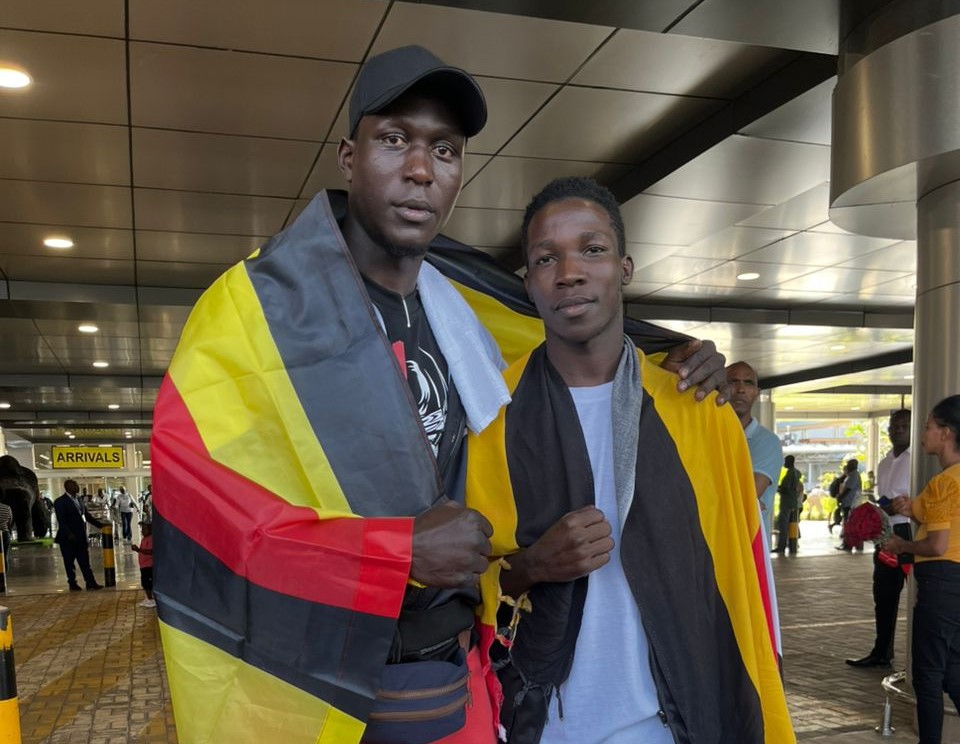
Crucial CAF Champions League Matchday 6: Quarter-Final Fates Hanging in the Balance
As the CAF Champions League group stage concludes, several teams face pivotal matches to secure quarter-final berths.
Herbert Matovu dominates Japan's Mitsuro Tajima with a decisive technical knockout, propelling the Ugandan heavyweight toward top-tier global rankings and spotlighting boxing reforms at home.

Uganda's heavyweight powerhouse Herbert "Black Bomba" Matovu delivered a thunderous statement on the international boxing stage, forcing a stoppage against Japanese contender Mitsuro Brandon Tajima on May 24, 2025. Promoted by Nara Promotionz, Matovu's explosive performance electrified the Tokyo crowd and marked a pivotal step in his quest for worldwide recognition.
Matovu showcased relentless aggression and precision throughout the scheduled eight-round contest, systematically breaking down Tajima's defenses. Referees halted the bout in the later rounds after the Ugandan unleashed a barrage of unanswered power shots, securing his seventh career victory by knockout. This dominant display underscored Matovu's reputation as one of Africa's most formidable rising talents.
"We executed our strategy perfectly and claimed a significant win," Matovu declared post-fight. "My sights are firmly set on climbing into boxing's elite – I intend to break into the global top ten rankings very soon."
Beyond celebrating his victory, the Kampala native issued a passionate plea for structural improvements in Ugandan boxing. He highlighted stark contrasts in professional licensing standards between Japan and his homeland: "I urge promoters, managers, and sports authorities back home to prioritize proper licensing systems. In Japan, I received immediate professional accreditation after this fight, yet we've paid licensing fees for years in Uganda without receiving actual documentation. This must change to develop our sport."
The triumph elevates Matovu's professional record to an impressive nine fights, with eight wins (seven by stoppage) against a single loss. More significantly, his global positioning has undergone a dramatic transformation. Matovu now reigns as East Africa's top-ranked heavyweight, occupies the fifth continental spot in Africa, and has surged to 127th in worldwide standings – a substantial leap forward in the competitive division.
Nara Promotionz, Matovu's management team, expressed profound pride in his accelerated development. "Herbert embodies the explosive potential of African boxing," asserted manager Allan Busulwa. "His discipline and raw power are undeniable. We're witnessing a future global heavyweight force emerging from Uganda, and we're committed to nurturing this caliber of talent across the continent."
Matovu's commanding performance has intensified anticipation within the international boxing community. Analysts predict imminent high-profile matchups against continental champions and top-50 global contenders. As sanctioning bodies take note of his rapid ascent, opportunities for regional title eliminators or championship bouts appear increasingly likely before year's end.
Beyond athletic achievement, Matovu's call for administrative reform spotlights systemic challenges facing Ugandan boxing. His firsthand experience with efficient licensing abroad contrasts sharply with domestic hurdles, potentially catalyzing dialogue between athletes, promoters, and government sports ministries. The "Black Bomba" phenomenon thus represents not merely sporting excellence, but a catalyst for structural progress within East Africa's combat sports landscape.
Comments (0)
Leave a Comment
Be the first to comment on this article!